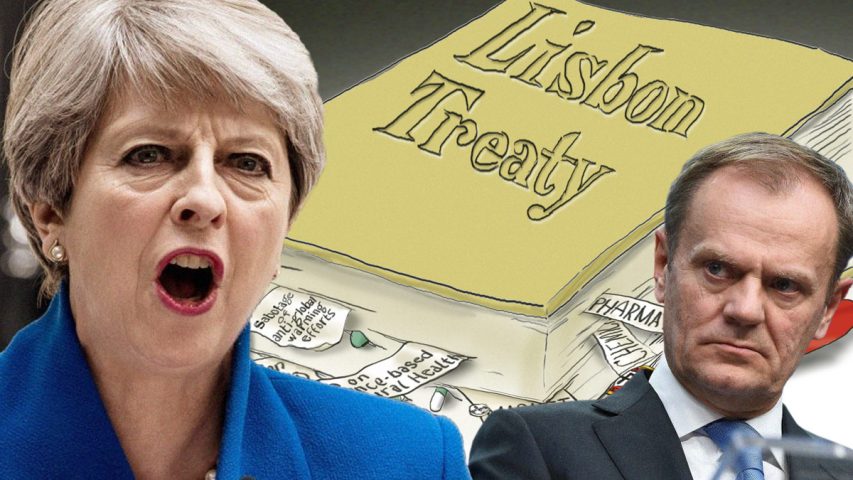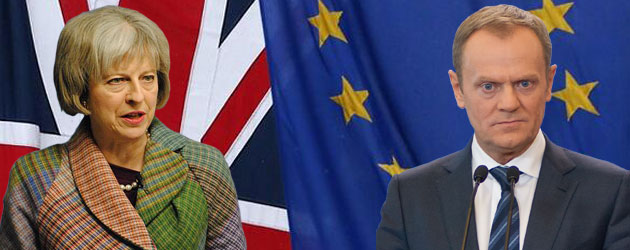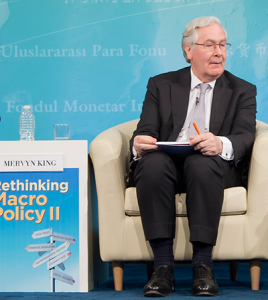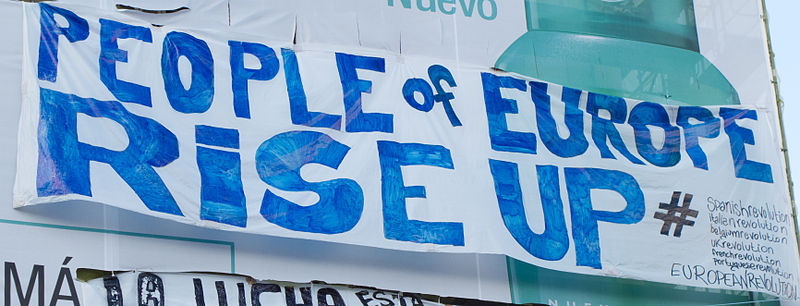- Have any questions? Contact us!
- info@dr-rath-foundation.org

The medical profession has been wrong before
March 28, 2017
The dam of the “business with the AIDS epidemic” is breaking
April 4, 2017Demise Of The Brussels EU Moves Closer: UK Government Issues Formal Notice Of Intention To Leave

On Wednesday 29 March, 2017, nine months after the people of the United Kingdom had dramatically voted in a national referendum to leave the Brussels EU, prime minister Theresa May issued formal notice of the country’s intention to withdraw from the undemocratic political construct. In a letter delivered to Donald Tusk, president of the so-called European Council, she described how the Brexit referendum on 23 June, 2016, was a vote to restore self-determination for the British people. By officially triggering Article 50 of the so-called Lisbon Treaty and kick-starting the two-year divorce period it sets out, her letter effectively brought the demise of the Brussels EU a significant step closer.
 The departure of Britain from the Brussels EU comes at a time when global awareness of the construct’s Nazi origins is becoming mainstream. Following the publication of our explosive book, The Nazi Roots of The ‘Brussels EU’, in 2010, the shocking facts about the background to this undemocratic political structure have been reverberating around the world. Contributing to this understanding, in a particularly notable intervention during the Brexit referendum campaign, British MP Boris Johnson – who was subsequently appointed as foreign secretary in Theresa May’s government – openly admitted that the Brussels EU is pursuing a similar goal to Nazi Germany but via “different methods”. By publicly sharing this historical fact, Johnson helped draw wider attention to important information that had long been hidden from the people of Britain and Europe.
The departure of Britain from the Brussels EU comes at a time when global awareness of the construct’s Nazi origins is becoming mainstream. Following the publication of our explosive book, The Nazi Roots of The ‘Brussels EU’, in 2010, the shocking facts about the background to this undemocratic political structure have been reverberating around the world. Contributing to this understanding, in a particularly notable intervention during the Brexit referendum campaign, British MP Boris Johnson – who was subsequently appointed as foreign secretary in Theresa May’s government – openly admitted that the Brussels EU is pursuing a similar goal to Nazi Germany but via “different methods”. By publicly sharing this historical fact, Johnson helped draw wider attention to important information that had long been hidden from the people of Britain and Europe.
But the key moment that brought worldwide awareness to this issue during the Brexit campaign came precisely two weeks before the vote. On 9 June, 2016, in an unprecedented move, the London Times published our Foundation’s advertorial containing proof that the design of the ‘Brussels EU’ came directly from the drawing boards of Nazi Germany. This revelation spread rapidly, with international media propelling it around the globe. Within days, major British newspapers were openly calling for their readers to vote for leaving the ‘Brussels EU’.
The Brussels EU financial crisis is NOT accidental

Lord Mervyn King, former Governor of the Bank of England, has publicly confirmed the European financial crisis is the result of a “deliberate” act of policy – Image by International Monetary Fund [CC BY-NC-ND 2.0], via Flickr.com
If you doubt this, consider just how long beforehand the preparations for a crisis were underway. In a barely-noticed article published in the UK’s Financial Times in 2001, the then president of the Brussels EU Commission, Romano Prodi, stated he was sure the introduction of the euro currency would oblige the Brussels EU “to introduce a new set of economic policy instruments.”
“It is politically impossible to propose that now”, Prodi admitted. “But some day there will be a crisis and new instruments will be created.”
More damning evidence of the premeditated nature of the European financial crisis came in March 2016 from Lord Mervyn King, the former Governor of the Bank of England. In a speech given at the influential London School of Economics, King publicly confirmed that the European financial crisis was essentially the result of a “deliberate” act of policy. Highly critical of the destructive economic strategies of the Brussels EU, he predicted that, in order to free the construct’s weakest member countries from the strangulating combination of austerity measures and high unemployment they are suffering from, the euro currency will have to be dismantled.
To summarize, therefore, the financial crisis in Europe was created intentionally. Its purpose was to enable the Brussels EU to use the resulting economic chaos as a trigger for bringing in new laws to move the construct closer to the undemocratic political model that had been intended all along. By acting as a chain to enslave millions of people in Europe to financial dictatorship, the creation of the euro currency played a decisive role in this.
Towards a Europe for the People, by the People

Carlos Delgado [CC BY-SA 3.0], via Wikimedia Commons
Given the dire economic and social conditions in some European countries right now, positive change clearly can’t come soon enough. Take the example of Greece, one of the countries hardest hit by the sledgehammer devastation of the euro. Despite more than 23 percent of the Greek people now being unemployed, government debt standing at around 320 billion euros – an amount equivalent to 180% of the country’s GDP, and poverty up 40% since 2008, the Brussels EU continues to insist on debt repayment rather than deal with the growing humanitarian crisis. This tells us everything about whose interests this dictatorial construct really serves. With even the International Monetary Fund (IMF) reckoning Greece will never be able to repay the money it owes, the utter callousness of the Brussels EU in putting multinational investors before children going hungry has been plainly exposed for all to see.
Seen in this light, Brexit is a positive development that can only weaken the destructive power of the Brussels EU. The sooner its corporate-driven dictatorship over Europe is brought to an end, the sooner we can move on and build a Europe that truly works in the interests of all its people.



